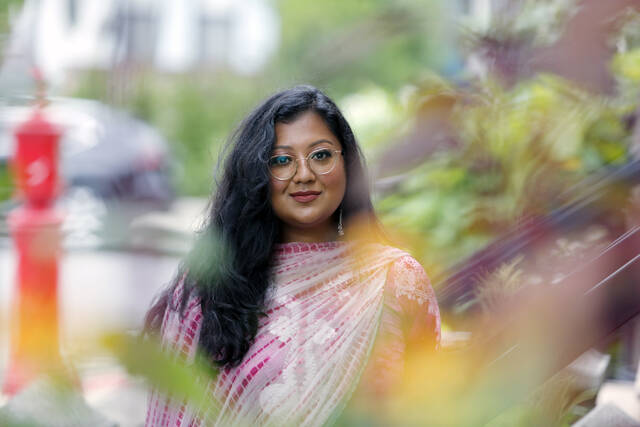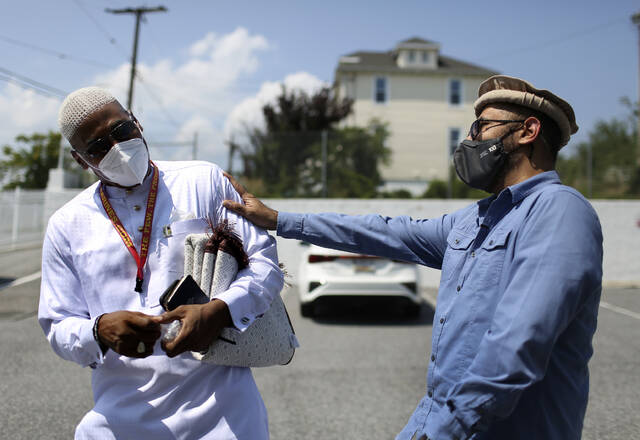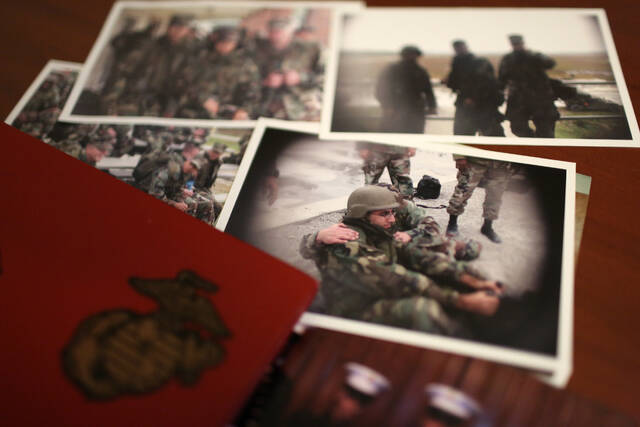


NEW YORK (AP) — A car passed, the driver’s window rolled down and the man spat an epithet at two little girls wearing their hijabs: “Terrorist!”
It was 2001, mere weeks after the World Trade Center fell, and 10-year-old Shahana Hanif and her younger sister were walking to the local mosque from their Brooklyn home.
As the 20th anniversary of the Sept. 11 terror attacks approaches, Hanif still recalls her confusion over how anyone could look at her, a child, and see a threat.
“It’s not a nice, kind word. It means violence, it means dangerous. It is meant to shock whoever … is on the receiving end of it,” she says.
But the incident also spurred a determination to speak out for herself and others. She’s become a community organizer and is strongly favored to win a seat on the New York City Council in an upcoming election.
Like Hanif, other young American Muslims have grown up under the shadow of 9/11. Many have faced hostility, suspicion, questions about their faith, doubts over their Americanness.
They’ve also found ways to fight back against bias, to organize, to craft nuanced personal narratives about their identities. In the process, they’ve built bridges and challenged stereotypes.
There is “this sense of being Muslim as a kind of important identity marker, regardless of your relationship with Islam as a faith,” says Eman Abdelhadi, a University of Chicago sociologist.
Mistrust of Muslims didn’t start on 9/11, but it dramatically intensified with the attacks.
America’s diverse Muslim communities were foisted into the spotlight, says Youssef Chouhoud, a political scientist at Virginia’s Christopher Newport University.
“Your sense of who you were was becoming more formed, not just Muslim but American Muslim,” he says. “What distinguished you as an American Muslim? Could you be fully both, or did you have to choose? There was a lot of grappling with what that meant.”
In Hanif’s case, there was no blueprint.
“Fifth-grader me wasn’t naïve or too young to know Muslims are in danger,” she wrote in an essay about 9/11’s aftermath. “…Flashing an American flag from our first-floor windows didn’t make me more American.”
A young Hanif gathered neighborhood friends to write a letter to then-President George W. Bush asking for protection.
“We knew,” she says, “that we would become like warriors of this community.”
___
But being warriors often carries a price.
Ishaq Pathan, 26, recalls when a boy told him he seemed angry and wondered if Pathan was going to blow up their Connecticut school.
He remembers feeling helpless when taken aside at an airport for additional questioning upon returning to the United States after a college semester in Morocco.
The agent looked through his belongings, including the laptop where he kept a private journal, and started reading it.
“I remember having tears in my eyes. I was completely and utterly powerless,” says Pathan.
“You go to school with other people of different backgrounds and you realize … what the promise of the United States is,” he adds. “And when you see it not living up to that promise, then I think it instills in us a sense of wanting to help and fix that.”
He now works as the San Francisco Bay Area director for the nonprofit Islamic Networks Group, trying to help younger generations grow confident in their Muslim i




